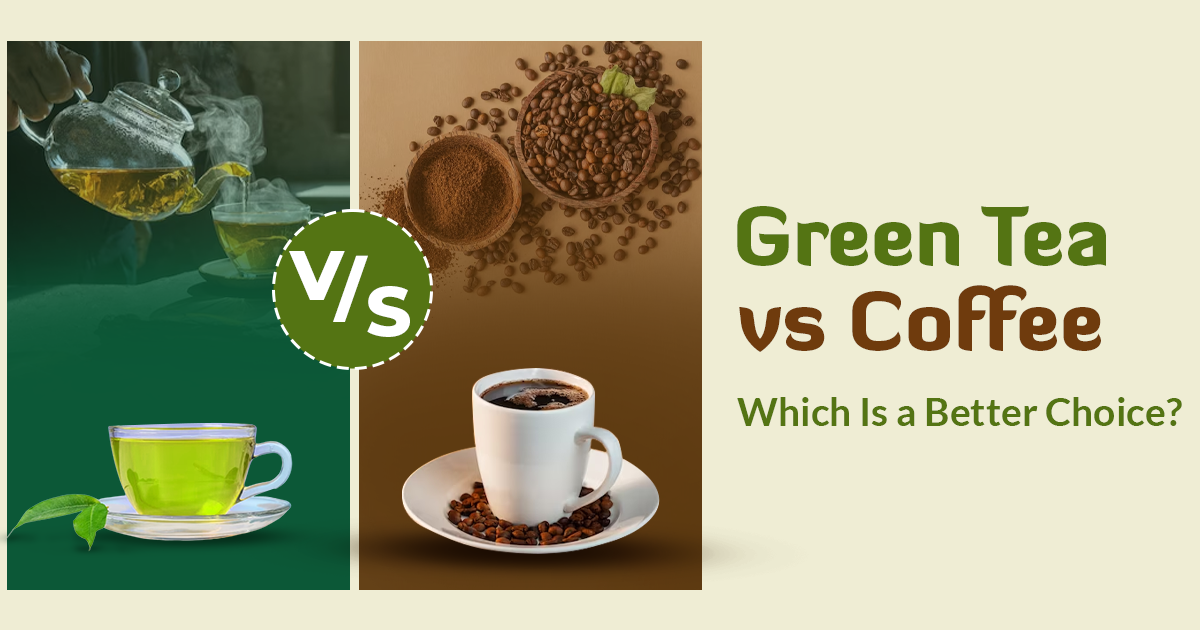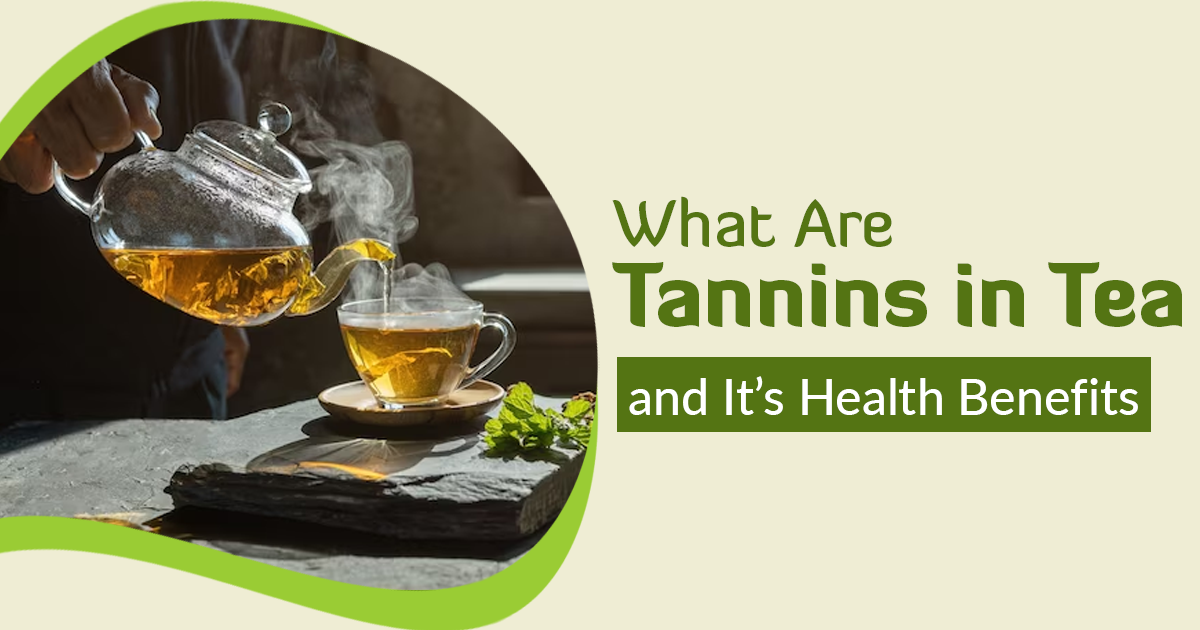Green tea and coffee have long been popular beverages enjoyed by people around the world. Both drinks offer a boost of energy and a range of potential health benefits. However, the question of which is better has sparked a debate among enthusiasts. In this comprehensive guide, we will delve into the differences between green tea and coffee, exploring their caffeine content, adaptability, preparation methods, cultural significance, health benefits, and potential risks. By the end, you'll have a clearer understanding of these beverages and be able to make an informed decision about which one suits your personal preferences and needs.
Caffeine Content: Unveiling the Myth
Caffeine is a key component in both green tea and coffee, known for its stimulant effects on the central nervous system. However, the caffeine content in these drinks can vary significantly. Coffee generally contains more caffeine than green tea, with an average cup of coffee containing 80 to 100 mg of caffeine, while green tea typically contains 30 to 50 mg per cup. It's important to note that these figures are estimates, as various factors can influence the caffeine content in both beverages.
Factors such as the tea variety, harvest time of leaves, temperature, brewing time, and brewing method can all impact the caffeine levels in green tea. Similarly, coffee species, grind size, brewing method, amount of coffee used, brewing time, and temperature can affect the caffeine content in coffee. Additionally, it's worth mentioning that decaffeinated versions of both green tea and coffee are available, although they still contain trace amounts of caffeine.
Adaptability: A World of Flavors
One of the remarkable aspects of both green tea and coffee is their adaptability in various drink recipes. Whether you prefer hot or cold beverages, there are endless possibilities for incorporating these flavors into your daily routine. Traditional preparation methods include brewing loose-leaf tea or using tea bags for green tea, while coffee can be brewed using methods such as espresso machines, drip coffee, French press, or even Turkish sand brewing.
Both green tea and coffee serve as a base for a wide range of cafe-style drinks. Coffee-based beverages like frappes, lattes, cappuccinos, and espresso shots have become iconic favorites, while green tea-based alternatives such as matcha lattes and matcha affogato have gained popularity as well. Moreover, both beverages can be enjoyed in cold form, whether iced or blended into refreshing frappuccinos. For those seeking an extra kick, alcoholic drinks infused with green tea or coffee are also available, offering a unique twist to traditional cocktails.
Preparation Methods: Art and Science
The art of preparing green tea and coffee is deeply rooted in their respective cultures. Green tea traditions, especially in Japan, involve various brewing methods such as small gaiwan brewing, bowl brewing, and matcha whisking. These methods highlight the importance of precision, attention to detail, and appreciation for the tea's delicate flavors and aromas. On the other hand, coffee enthusiasts have developed a multitude of brewing techniques influenced by different cultures and locations. From the use of espresso machines to the Aeropress, Moka Pot, and French press, each method brings out unique characteristics in the coffee beans, resulting in diverse flavor profiles.
One notable similarity between green tea and coffee is the growing popularity of cold brewing. Cold-brewed tea and coffee offer a smoother and less acidic taste compared to their hot-brewed counterparts. Although the steeping time and brewing temperature may vary, the process and tools for cold brewing remain relatively similar for both beverages. This method has gained traction among those seeking a refreshing alternative and a unique way to extract flavors from tea leaves and coffee grounds.
Cultural Significance: From Ceremonies to Cafe Culture
Green tea and coffee hold significant cultural importance in different parts of the world. Green tea, particularly Japanese green tea, is often associated with tradition, ceremony, and a sense of calmness. The Japanese tea ceremony, known as "chanoyu," is a highly ritualistic practice that emphasizes harmony, respect, purity, and tranquility. While this ceremonial aspect of green tea still exists, modern green tea consumption has shifted towards a more casual and accessible approach, accommodating the preferences of younger consumers.
Coffee, on the other hand, has evolved into a global phenomenon, deeply embedded in various cultures. Coffee shops have become social hubs, providing a gathering place for friends, colleagues, and communities. The rise of third-wave and specialty coffee movements reflects a growing emphasis on ethical farming practices, traceability, and mindful consumption. Coffee is often associated with productivity, personalization, and the enjoyment of unique flavor profiles.
Health Benefits: Unraveling the Truth
Both green tea and coffee offer potential health benefits, although scientific research often struggles to isolate the specific advantages of each beverage due to confounding factors. Coffee, rich in antioxidants, has been linked to a reduced risk of type 2 diabetes, Parkinson’s disease, and certain types of cancer. It may also aid in regular bowel movements and provide a short burst of energy and focus. Green tea, packed with cancer-fighting polyphenols, can potentially help burn fat, lower cholesterol, boost metabolism, and reduce the risk of diseases like dementia, Alzheimer’s, and Parkinson’s. Its high antioxidant content promotes detoxification, slows aging, and combats inflammation. Additionally, green tea contains L-theanine, an amino acid that promotes relaxation and may improve sleep quality.
It's worth noting that both green tea and coffee can contribute to hydration, making them suitable alternatives for those who dislike plain water. However, it's important to avoid excessive consumption of added ingredients like milk, cream, sweeteners, and syrups, as they can increase calorie intake unnecessarily.
Potential Risks: The Dark Side of Caffeine
The primary concern associated with both green tea and coffee is their caffeine content and its potential side effects. Individuals with caffeine sensitivity may experience rapid heart rate, restlessness, insomnia, or anxiety. Caffeine can also disrupt natural hormonal cycles, particularly in women, leading to issues with ovulation, weight, and hormones over time. Additionally, consuming coffee on an empty stomach can stimulate excess acid production, potentially causing gastrointestinal discomfort. Other potential risks of coffee include reduced bone density, increased cholesterol levels, and a higher risk of heart disease, although more research is needed to establish conclusive evidence.
Green tea, being gentler on the digestive system, poses fewer risks compared to coffee. However, individuals with a history of kidney stones should exercise caution, as green and black tea contain high levels of oxalates, which can contribute to stone formation. Both beverages can cause teeth staining after long-term consumption, and green tea's tannins may interfere with iron absorption during meals.
Switching Between Green Tea and Coffee: Finding Balance
Switching between green tea and coffee can be a personal choice based on individual preferences and desired effects. If you decide to switch from green tea to coffee, be prepared for potential jitters due to the higher caffeine content. Conversely, transitioning from coffee to green tea may result in caffeine withdrawal symptoms. Gradually reducing coffee intake or opting for decaffeinated options can help ease the transition and minimize withdrawal effects. Decaffeinated versions of both beverages are available, although they may have slightly reduced levels of antioxidants.
Ultimately, the choice between green tea and coffee depends on your personal taste, caffeine sensitivity, and health goals. Pay attention to how your body feels and adjust your consumption accordingly. Both beverages offer unique flavors, potential health benefits, and cultural significance, making them valuable additions to your daily routine.
Conclusion: Embracing Variety and Individuality
The green tea vs. coffee debate has no definitive answer, as both beverages have their own merits and potential drawbacks. The key takeaway is to embrace variety and consider what works best for your body and lifestyle. Whether you prefer the energy boost of coffee or the mellow relaxation of green tea, both can be enjoyed in moderation as part of a balanced diet. Remember to listen to your body, experiment with different flavors and brewing methods, and savor the unique experiences each beverage has to offer. So go ahead, savor your cup of green tea or coffee, and enjoy the journey of discovering your personal favorite.




